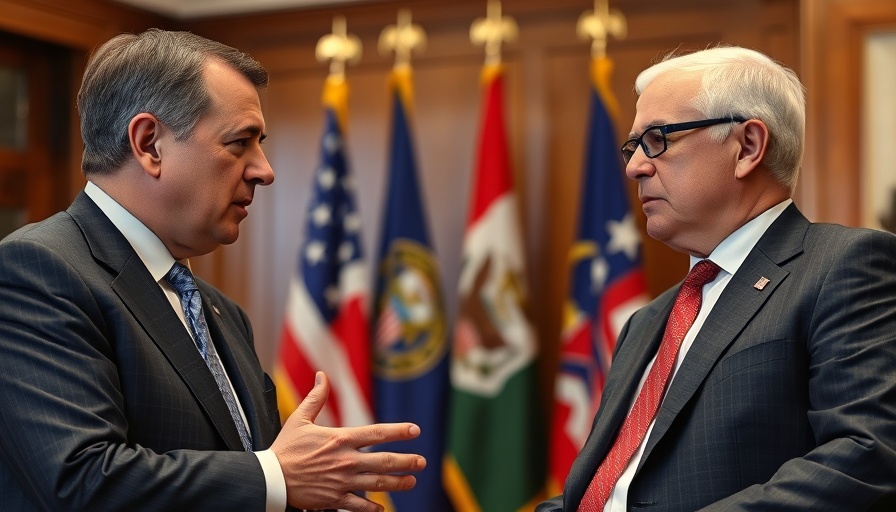
Florida's Fiscal Friction: Understanding the Governor vs. House Speaker Showdown
As Florida's 2025 legislative session reaches its midpoint, tensions are heating up between Gov. Ron DeSantis and the GOP House Speaker over budgetary priorities that could shape the state's financial landscape for years to come. The differences between their approaches have resulted in a staggering $4 billion gap that raises concerns not just for lawmakers, but for residents across Suncoast and beyond.
Clashing Visions for Tax Cuts and State Spending
At the heart of the conflict lies a fundamental disagreement on tax cuts and how much tax relief should be provided to Floridians. While both sides claim to want a leaner budget, the mechanisms proposed differ significantly. DeSantis seems focused on broad cuts that would benefit a larger population, while the House Speaker is advocating for a more targeted approach that could impact specific sectors differently. This tug-of-war is symptomatic of the broader ideological divides that have emerged in recent years, emphasizing the challenge of navigating fiscal governance.
The Stakes Are High for Floridians
The rift couldn't come at a more critical time. With looming project budget shortfalls, the debate over state spending directly affects local governments, social services, and the state’s growing infrastructure needs. As DeSantis and the House Speaker continue their public sparring, residents are left wondering how these decisions could ultimately affect their quality of life. Cuts or changes could mean alterations to vital services or infrastructure upgrades that are essential for everyday living.
Historical Context: Budget Battles in Florida
Understanding the current budget tensions requires a look back at previous fiscal disputes within Florida's legislature. Over the years, debates over budget cuts and spending priorities have often been contentious. Previous sessions have seen similar scenarios play out, resulting in a complex web of negotiations that highlight the challenges of achieving bipartisan agreement. This history serves as a backdrop against which current proposals are evaluated, emphasizing that not all decisions come without compromise and negotiation.
Engaging the Community: Why You Should Care
Federal and state budget allocations can feel remote but they fundamentally influence local economies, schools, and health services. As residents of the Suncoast and beyond navigate their own financial challenges, staying informed about these discussions empowers you to advocate for your community’s needs. The outcomes of these negotiations will reverberate beyond legislative chambers and impact your day-to-day life in countless ways—from education funding to public safety initiatives.
What’s Next? Predicting Future Outcomes
Looking ahead, many prompts are popping up as to how this clash will ultimately play out. Will both sides come together for a resolution before the end of the session, or will this deepen the divide? As the budget discussions proceed, it's vital for residents to stay engaged and informed. This not only helps in understanding the stakes at play, but also in preparing for potential changes in public services and tax structures.
Ultimately, remaining active in local governance and showing interest in community discussions can have a profound impact on shaping not just policies, but overall quality of life. Stay connected with local news, attend town hall meetings, and voice your concerns to ensure your needs are being represented.
 Add Row
Add Row  Add
Add 


 Add Row
Add Row  Add
Add 

Write A Comment